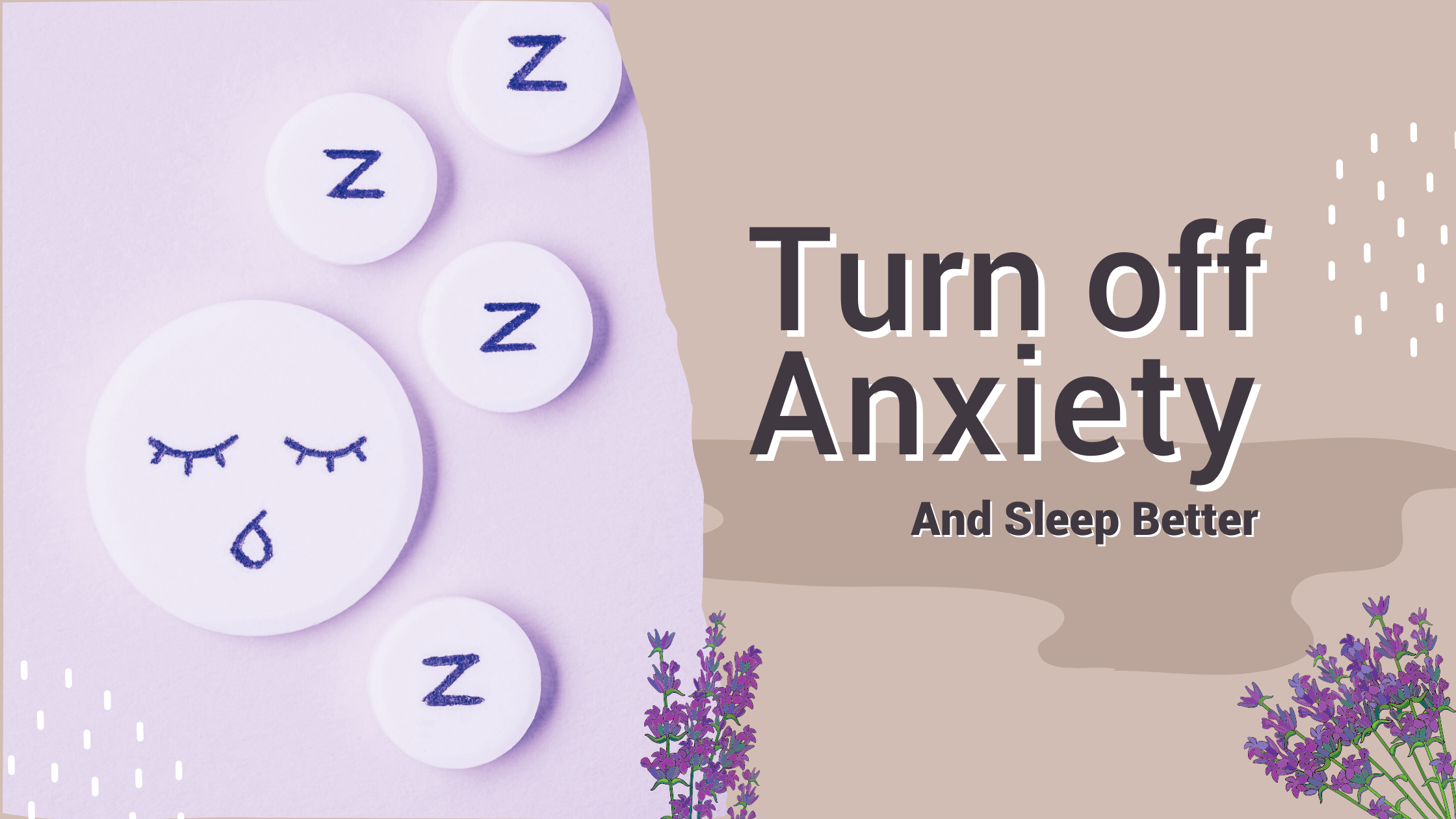
Tips to Turn Off Anxiety and Sleep Better
We’ve all been there before. Tossing and turning in bed, staring at the ceiling, unable to find the sweet release of sleep. Something stressful happened earlier in the day, or we have something to face later this week that’s triggering anxiety. Now, just when we’re looking for some relief from a night’s rest, it’s becoming impossible to find. Fortunately, there are a few ways that you can turn off your anxiety and get a better night’s sleep
5 Tips to Turn Off Anxiety and Sleep Better
Anxiety and sleep are deeply connected. We’re much less likely to fall asleep if we feel stressed out. This, in turn, makes it harder for us to battle the stressors of the next day, creating a stress snowball effect.
But it doesn’t have to be that way. Instead, you can use these tips to relieve stress and get back to snoozing.
- Avoid Caffeine
Caffeine is the most widely used substance in the world. That’s right – it’s bigger than booze. According to some sources, as much as 85% of the American population uses caffeine on a daily basis. It helps us in countless ways, from boosting productivity to helping us get in the mood to go to a bar or club at the end of a long week. Caffeine may even reduce the risks of suicide.
But there’s a dark side to caffeine – and we’re not just talking about the roast of your coffee beans. Some research points to the anxiolytic, or anxiety-inducing, traits that caffeine exhibits. This seems to be particularly prevalent among people who are already susceptible to anxiety disorders. It also seems to affect people who are naturally sensitive to caffeine.
That increased anxiety can have a negative impact on your sleep schedule. What’s more, caffeine itself is a stimulant. As a result, it naturally makes your body feel less tired. If you’re feeling anxious and can’t get to bed, definitely consider cutting your caffeine intake. If you can’t cut the coffee cold turkey, pair it with L-Theanine, which can be found in green tea or as a stand-alone supplement. Or cycle your caffeine use to days you only really need it.
- Turn Off Your Phone
It’s no secret that spending too much time on social media can trigger anxiety and depression. Experts agree on that. In fact, some research has shown that some social media users turn to alcohol to reduce their stress when posting.
Social media also works as a sort of anxiety feedback loop. Anxiety appears to trigger some social media users to log in and begin scrolling and posting. Once they do, that action triggers another round of anxiety. At this point, they’re basically double dosing on stress. The easiest way to avoid this? Put your phone down.
But that’s not the only reason to unplug from your devices. Experts at Harvard note that the high-energy blue spectrum light your phone emits can impact your sleep cycle. This kind of light tricks your brain into thinking it’s daytime outside, triggering wakeful feelings.
Long story short, put your phone down and read a book before bedtime. You’ll be able to both eliminate anxiety and get a better night’s sleep in one fell swoop.
- Take a Mental Break
Ultimately, anxiety is something that we do to ourselves. We may know that theoretically, but in the moment, when we’re feeling stressed, it’s a lot harder to put that into perspective. However, that just signifies how vital (and powerful) a mental break can be. The goal isn’t always to reduce your physical anxiety sometimes it’s to shut the anxiety-provoking voice in our heads off.
The idea is to get your mind off whatever it is that’s stressing you. For some people, finding a mantra can be helpful. This can be some quote that really appeals to you. Or, you can just keep telling yourself that your anxiety is just a temporary feeling. You could also try repeating some positive affirmations. And as cheesy as it sounds, counting sheep can also be a great way to distract your mind from whatever’s triggering your stress and help you fall asleep faster.
- Get Out of Bed
If we’re having trouble falling asleep, it’s tempting to just stay in bed. After all, if you just lie there for long enough, you’re going to pass out eventually, right? If you get up and start moving around, you might miss that one special moment when you finally drift off into sleep’s warm embrace.
However, that actually may not be the way to go. Laying in bed and obsessing about falling asleep can actually trigger more anxiety, creating (you guessed it) another feedback loop. Instead, you may have better luck getting out of bed and doing some light exercise. Even a short walk around your neighborhood can help ease anxiety and put you in the right mindset for sleep.
- Try Some CBD
If all else fails, you should consider giving CBD a try. This compound, which develops naturally in hemp and cannabis plants, appears to have anxiety-reducing and sleep-improving properties. In addition to working independently, both of these traits can team up to help you de-stress and finally get a good night’s rest. And there’s plenty of data to back it up, too.
Worried about CBD making you feel funny? Don’t be. Unlike its chemical cousin, THC, CBD is non-psychoactive. In other words, it won’t get you high. If you’re interested in trying CBD to help you get a better night’s sleep, Relive Everyday is here to help. Check out our full selection of CBD products, including tinctures, tablets, and more. Don’t give up on getting a better night’s sleep. Take control of your sleep schedule by turning off your anxiety and getting some rest!